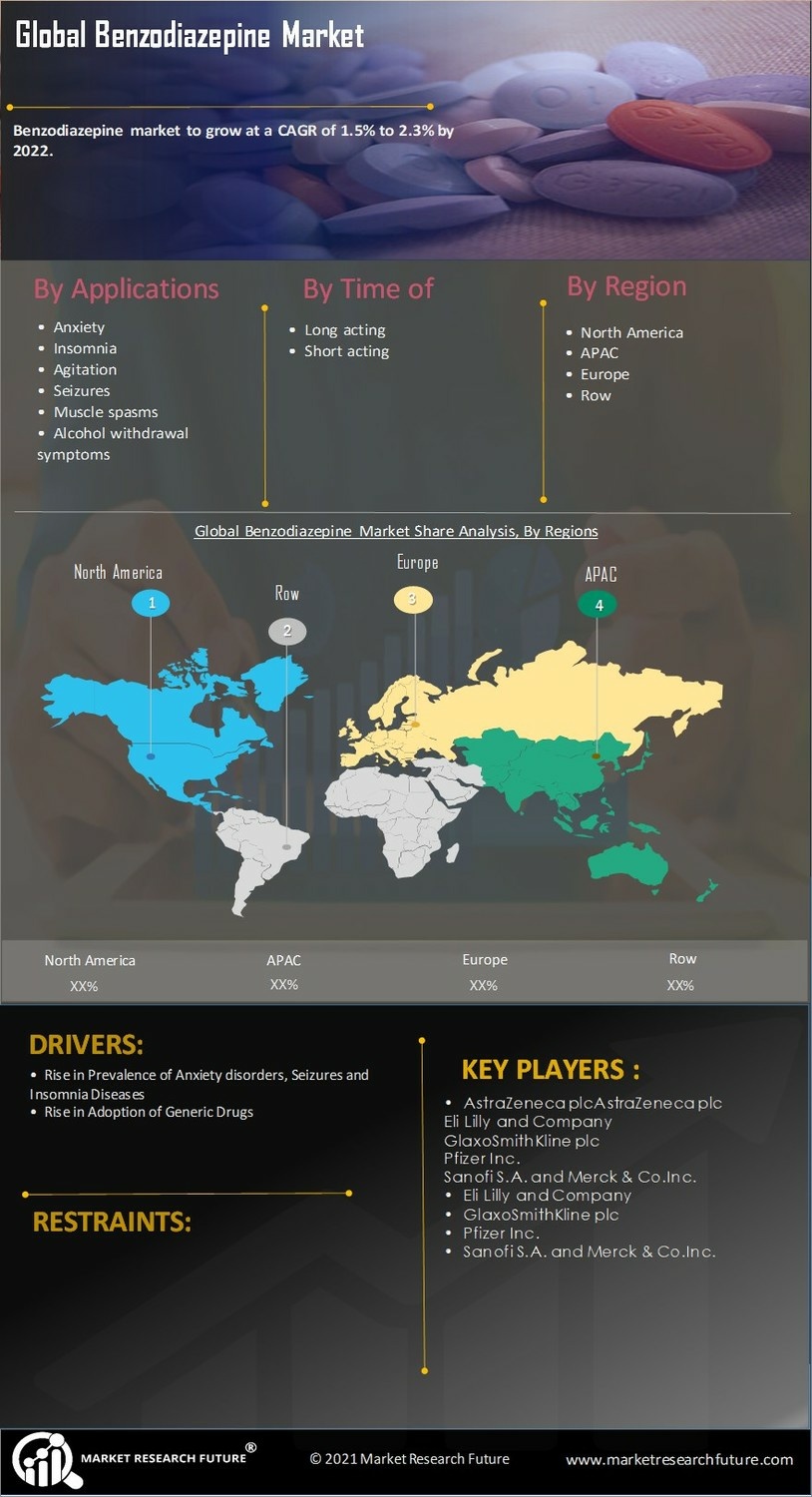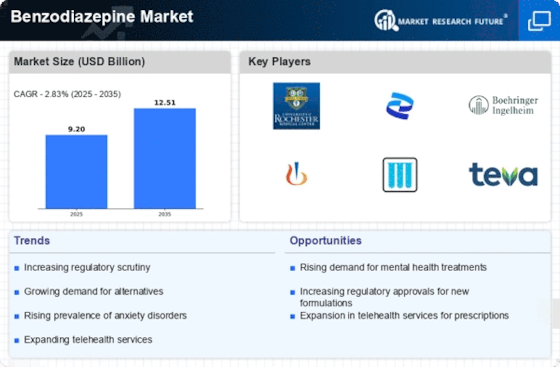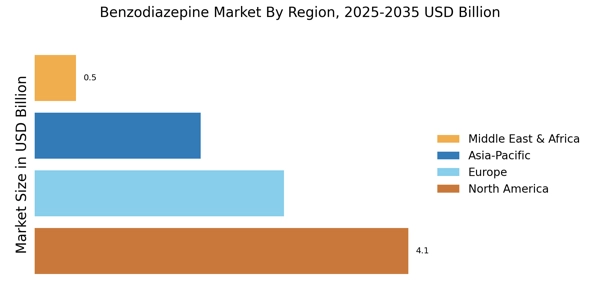Aging Population
The demographic shift towards an aging population is another significant driver for the Benzodiazepine Market. As individuals age, they often experience a range of mental health challenges, including anxiety and insomnia, which can lead to increased prescriptions of benzodiazepines. Data suggests that the elderly population is more susceptible to these conditions, thereby creating a robust demand for benzodiazepine medications. In fact, studies have shown that older adults are more likely to be prescribed benzodiazepines compared to younger individuals. This trend indicates a potential growth area for the Benzodiazepine Market, as pharmaceutical companies may focus on developing formulations tailored to the needs of older patients. The intersection of an aging demographic and the prevalence of mental health issues could result in a sustained increase in benzodiazepine consumption.
Evolving Treatment Protocols
The evolution of treatment protocols in mental health care is influencing the Benzodiazepine Market. As healthcare providers adopt more comprehensive approaches to treating anxiety and related disorders, benzodiazepines remain a critical component of these protocols. Recent guidelines suggest that benzodiazepines can be effectively integrated with cognitive behavioral therapy and other therapeutic modalities, enhancing patient outcomes. This integration may lead to an uptick in prescriptions, as clinicians recognize the value of benzodiazepines in managing acute symptoms while patients engage in longer-term therapeutic strategies. The Benzodiazepine Market could see a positive impact from this trend, as the combination of pharmacological and psychological treatments becomes more prevalent in clinical practice.
Rising Awareness of Mental Health
The increasing awareness of mental health issues is a crucial driver for the Benzodiazepine Market. As society becomes more attuned to the importance of mental well-being, individuals are more likely to seek treatment for anxiety and related disorders. This heightened awareness is reflected in the growing number of mental health campaigns and initiatives aimed at destigmatizing mental health conditions. Consequently, more patients are turning to healthcare providers for assistance, leading to an uptick in benzodiazepine prescriptions. The Benzodiazepine Market stands to benefit from this trend, as the demand for effective anxiolytic medications rises in tandem with public awareness. Furthermore, as mental health becomes a focal point in healthcare discussions, the market may experience sustained growth driven by increased patient engagement.
Advancements in Pharmaceutical Research
Advancements in pharmaceutical research are shaping the future of the Benzodiazepine Market. Ongoing research efforts are focused on developing new benzodiazepine formulations that offer improved efficacy and reduced side effects. Innovations such as extended-release formulations and combination therapies are being explored to enhance patient compliance and treatment outcomes. These advancements may lead to a revitalization of interest in benzodiazepines, as healthcare providers seek to prescribe medications that align with contemporary treatment paradigms. The Benzodiazepine Market could witness a surge in demand as new products enter the market, potentially attracting a broader patient demographic. As research continues to evolve, the landscape of benzodiazepine medications may transform, offering new opportunities for growth.
Increasing Prevalence of Anxiety Disorders
The rising incidence of anxiety disorders is a pivotal driver for the Benzodiazepine Market. Recent studies indicate that anxiety disorders affect approximately 18% of the adult population, leading to a heightened demand for effective treatment options. Benzodiazepines, known for their rapid anxiolytic effects, are often prescribed as first-line therapies. This increasing prevalence suggests a sustained growth trajectory for the Benzodiazepine Market, as healthcare providers seek to address the mental health needs of patients. Furthermore, the ongoing emphasis on mental health care is likely to bolster the market, as more individuals seek professional help for anxiety-related issues. As awareness of mental health continues to expand, the demand for benzodiazepines may further intensify, potentially leading to increased market revenues.

















